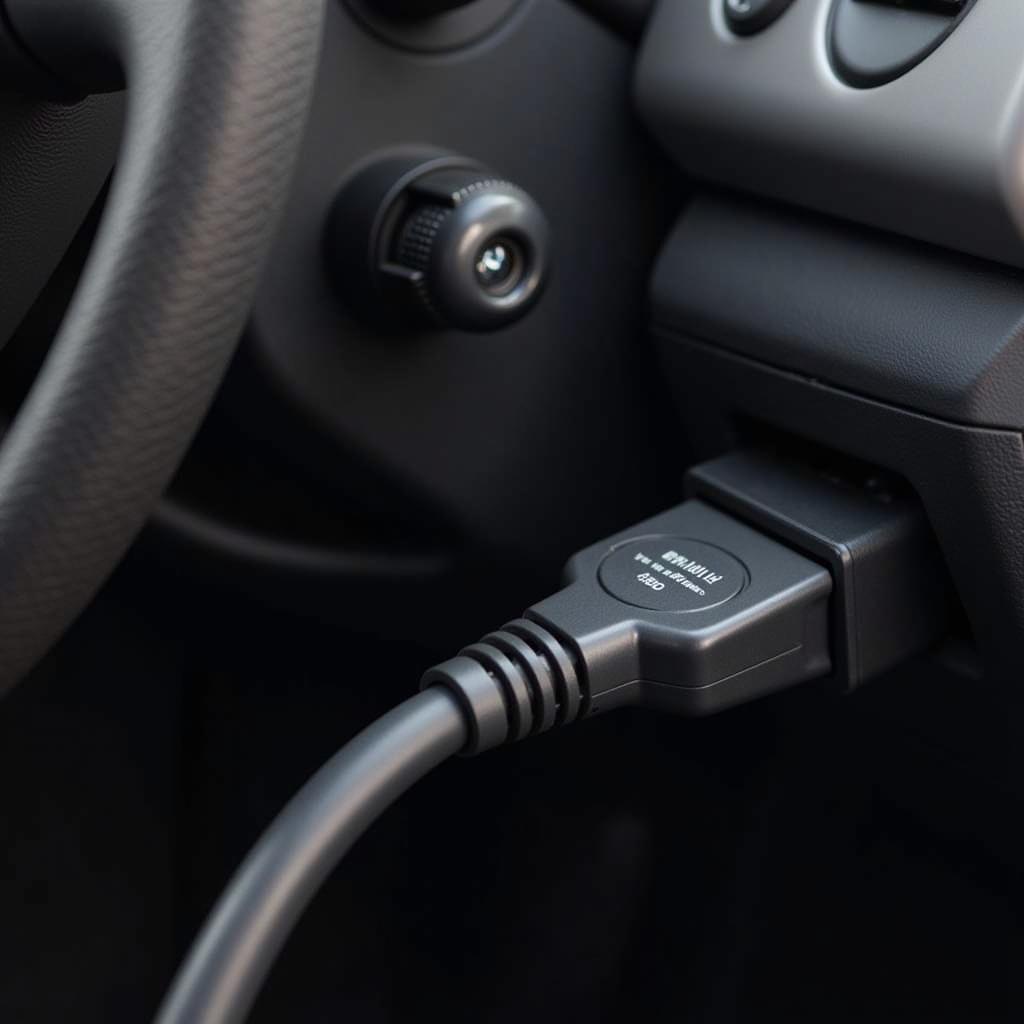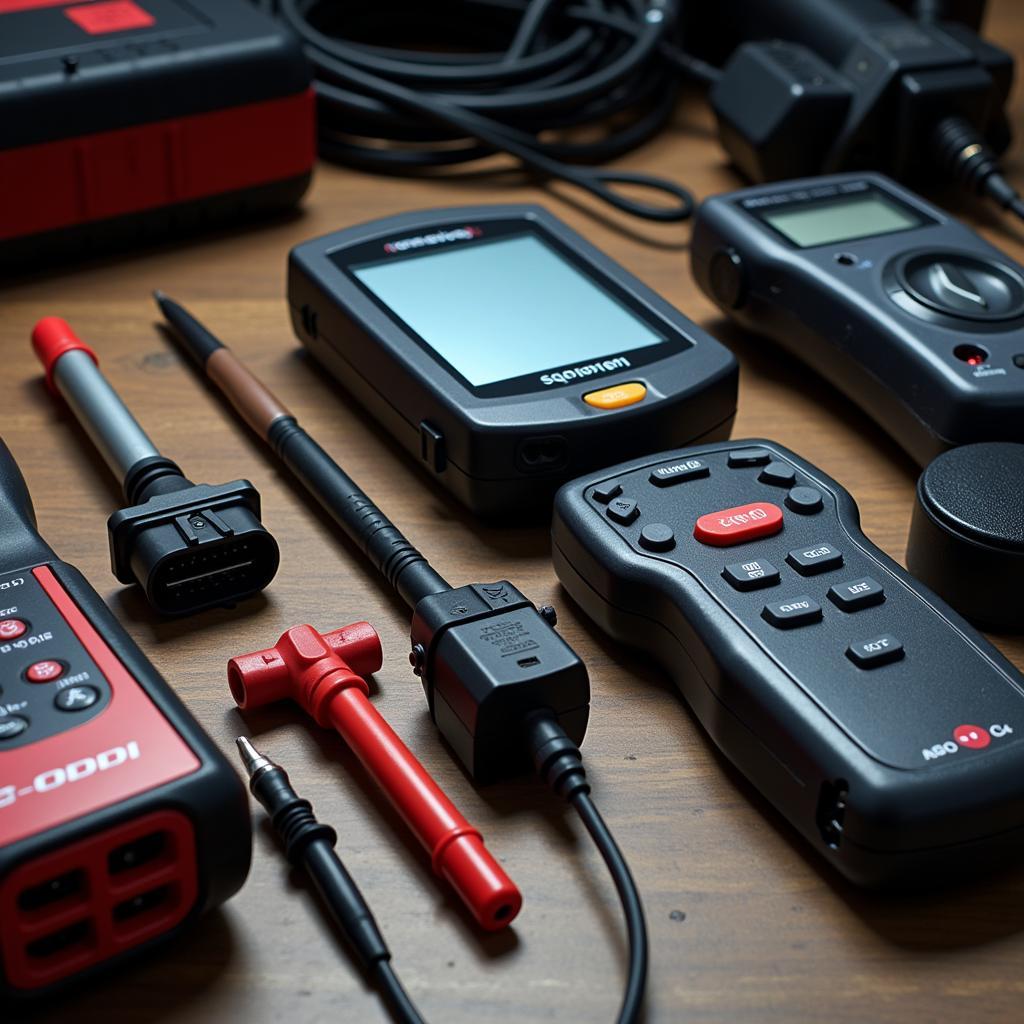Car diagnostics have evolved significantly from basic engine light checks to sophisticated computer analyses. Today, understanding the different Types Of Car Diagnostic tests is crucial for car owners and mechanics alike. These tests unlock a wealth of information about your vehicle’s health, helping pinpoint issues and ensuring optimal performance.
What are the Common Types of Car Diagnostic Tests?
There are numerous car diagnostic tests, each targeting specific areas of your vehicle’s system. Here are some of the most common types:
1. OBD-II Diagnostic Test
The On-Board Diagnostics II (OBD-II) test is the most common type. Using a standardized connector, usually located under the dashboard, it retrieves data from the vehicle’s Electronic Control Unit (ECU). This test identifies issues related to:
- Engine performance: Misfires, fuel system problems, and emissions issues.
- Transmission: Gear shifting problems, slippage, and torque converter malfunctions.
- Brakes: ABS system faults, brake fluid level, and sensor problems.
- Airbags: Deployment issues, sensor malfunctions, and wiring problems.
 OBD-II Connector
OBD-II Connector
2. Battery and Charging System Test
As the name suggests, this test evaluates the battery’s health and the charging system’s efficiency. It measures:
- Battery voltage: Indicates the battery’s charge level.
- Starting system current draw: Assesses the starter motor’s health.
- Alternator output: Checks the charging system’s ability to recharge the battery.
This test is crucial for identifying battery issues, alternator malfunctions, and starting system problems.
3. Engine Analyzer Test
This in-depth test goes beyond the OBD-II scan, providing a comprehensive analysis of the engine’s performance. It analyzes:
- Ignition system: Spark plug condition, ignition coil performance, and timing issues.
- Fuel system: Fuel pressure, injector pulse width, and fuel delivery.
- Compression: Cylinder pressure to identify potential mechanical issues.
An engine analyzer test is essential for diagnosing complex engine problems, optimizing performance, and improving fuel efficiency.
4. Exhaust Gas Analyzer Test
Focusing on emissions, this test measures the composition of exhaust gases, including:
- Carbon monoxide (CO): High levels indicate incomplete combustion.
- Hydrocarbons (HC): Indicate unburnt fuel in the exhaust.
- Nitrogen oxides (NOx): Indicate high combustion temperatures.
This test helps identify issues with the catalytic converter, oxygen sensors, and overall engine combustion efficiency.
5. Transmission Fluid Analysis
This test examines the condition and properties of the transmission fluid, checking for:
- Fluid color and odor: Dark or burnt fluid indicates potential problems.
- Viscosity: Determines the fluid’s ability to lubricate and cool.
- Presence of metal particles: Indicates wear and tear on internal components.
Regular transmission fluid analysis can prevent costly transmission failures by identifying issues early on.
6. Electrical System Diagnosis
This broad category encompasses tests targeting various electrical components, including:
- Wiring harness: Checks for shorts, open circuits, and corrosion.
- Sensors: Verifies the functionality of sensors like crankshaft, camshaft, and oxygen sensors.
- Actuators: Tests the operation of actuators such as solenoids, motors, and valves.
Electrical system diagnosis is crucial for identifying the root cause of various electrical issues that can affect multiple systems in the vehicle.
 Car Diagnostic Tools
Car Diagnostic Tools
How Do I Know Which Car Diagnostic Test I Need?
Choosing the right car diagnostic test depends on your car’s symptoms.
- For illuminated warning lights on your dashboard, like the check engine light, an OBD-II Diagnostic Test is a good starting point.
- Experiencing engine performance issues? Consider an Engine Analyzer Test.
- Concerned about your car’s emissions? An Exhaust Gas Analyzer Test is recommended.
“Performing regular car diagnostic tests can prevent minor issues from escalating into major, expensive repairs,” says John Miller, a seasoned automotive engineer at DiagFixPro. “It’s an investment in your car’s longevity and your peace of mind.”
Conclusion
Understanding the different types of car diagnostic tests empowers car owners to take proactive measures in maintaining their vehicles. Whether you’re experiencing a specific issue or simply want to ensure optimal performance, these tests provide valuable insights into your car’s health. Remember to consult a qualified mechanic or technician to interpret the test results and recommend the appropriate course of action.
For more in-depth information on car diagnostic tools and their uses, explore our articles on types of car diagnostic tools and diagnostic scan tool for all cars.

Leave a Reply